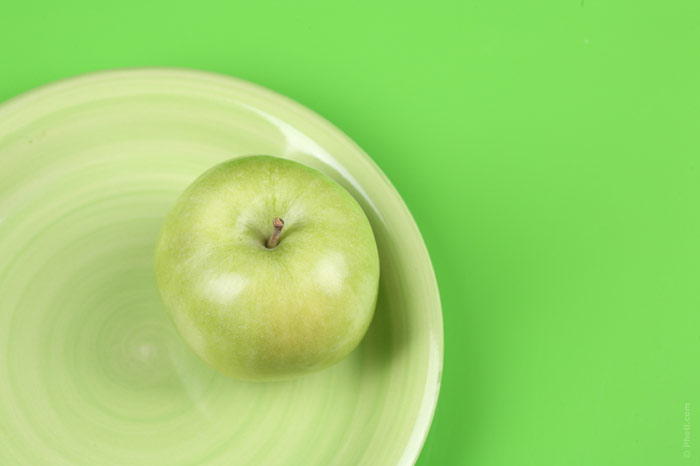There is an opinion that we use the brain by only 5-10%. Neuroscientists treat this statement differently: some agree and some disagree. Still, both groups are unanimous in believing that brains can and should be trained.

Human brain is an amazing organ. It is the most affordable and at the same time the most complicated “device” in the universe.
Here are some techniques that will help to train the brain.
Training

- Aerobic exercise. This is an exercise type, where oxygen is the main source of energy. Aerobic exercise strengthens muscles, normalizes blood circulation, and relieves stress. A recent study conducted in the University of Illinois also showed that aerobic exercises have a beneficial effect on the brain. Just 30 minutes of exercise a day, and your cognitive performance will be improved by 5-10%.
- Strength training. Are bodybuilders stupid? Certainly not! Lifting weights not only builds muscles, but also increases the level of the so-called neurotrophic brain factor, a protein that is responsible for protecting the neurons of the brain.
- Music. Another study has found that the brain begins to work better if you listen to your favorite music during the workout. So choose the right music for jogging and pave your way to becoming a genius.
- Dancing. It’s a great way to keep fit, improve flexibility and coordination. Moreover, according to the doctor of medicine, neurophysiologist, neuropsychiatrist and author of the book Magnificent Mind at Any Age, Daniel G. Amen, dancing is also a great way to train thinking. When dancing, we use different parts of the brain.
- Golf. It is not accidental that golf is called an intellectual game: it is not as easy as it seems at first glance to calculate the force of impact and the ball trajectory. In addition, physicians believe that golf stimulates the sensory cortex of the brain.
- Yoga. This ancient Indian spiritual and physical practice turns out to be not just beneficial for health, but also improve memory, the ability of self-control and long-term focusing. At least this is the conclusion reached by the scientists from the University of Illinois, led by Neha Gothe.
Nutrition

- Water. Roughly 80% of the body is made up of water. Each organ needs it, especially the brain. A scientific experiment helped to reveal that the people who are thirsty cope with logical problems worse than those who have drunk a pint of water before testing.
- Omega 3. Unsaturated fatty acids are extremely useful, for the brain and nervous system in particular. They provide quick energy needed to transmit impulses from cell to cell, which in turn increases the ability to think and helps to quickly extract the required information from the “reservoir” of memory. A lot of Omega-3 is found in fish, walnuts, and flaxseed oil.
- Greenery. Spinach and other greens contain folic acid, vitamins E and K. These substances prevent the development of dementia. Greenery also contains antioxidants which protect the brain from stroke, Alzheimer’s and Parkinson’s diseases.
- Apples. They contain quercetin, a substance with spasmolytic, anti-inflammatory, and other useful effects. But the most important thing is that quercetin protects the brain cells from damage, and consequently, it prevents the disruption of the brain’s cognitive abilities. Most of it is contained in the apple peel.
- Nuts. Nuts are rich in protein, and protein supplies the brain with energy. Furthermore, nuts are rich in lecithin, the lack of which can cause multiple sclerosis and other nervous disorders in the body.

- Vitamins. B9 (citrus fruits, bread, beans, honey) and B12 (liver, eggs, fish) are the substances without which the normal functioning of the body is impossible. The first substance is needed to create and maintain healthy new cells, and the second one reduces the symptoms of senile dementia and mental confusion.
- Eggs. Which came first: the chicken or the egg? You may find the answer to this philosophical question, if you eat them both. Chicken yolk is a source of choline, and it helps develop the cognitive function of the brain, that is, the ability to understand, to learn, to study, to realize, to perceive and process information.
- Milk. Milk contains calcium, which strengthens the bones. In addition, scientists have found that a glass of milk a day improves memory and other mental abilities.
- Coffee. This is not a joke. Scientific studies have found that caffeine can improve attention and short-term memory. Of course, it will add vigor.
- Chocolate. If you are going to take an exam, eat a chocolate bar. Everyone does this, but few people know why. Actually, very few people know how chocolate makes us smarter. The point is in glucose and flavonols. Sugar accelerates the reaction and improves memory, whereas flavonols stimulate other cognitive skills.
Schedule

- Deep sleep. We have already talked about how important deep sleep is for normal life. There is just one tip to reiterate – for you brain to work well, you need to sleep at least seven hours a day.
- Drowsiness. It is useful to take a nap. It is an indisputable fact. The question is how much time you need. The ideal length of an afternoon nap is 10-20 minutes. A person does not have much time for deep sleep, and it is easier to wake up. On the other hand, according to scientists, a 90-minute nap has the best effect on the brain (it improves memory and helps generate creative ideas).
- Daily routine. Break it! Yes, yes, destroy the routine established over the years for just one day – have a cup of coffee in another cafe and at 11 o’clock rather than at 9, choose a new route to go to work and shuffle the items in your organizer. Such changes are very helpful – they help the brain to stay focused.
- Senses. Another interesting exercise for the brain is the exacerbation of separate senses. For example, hearing. To do this, tie your eyes and try to walk around the room, focusing only on the surrounding sounds.

- Workplace. Is there much lumber on your table? Then there is much mess in your head, too. A lumbered workplace is not only ugly; it also has significant impact on your performance. It has a negative influence. Keep your workplace in order, and you will be surprised how fast the brain will start to work.
- Sketches. If you find it difficult to concentrate on any task (and it is extremely necessary to do this), try to take a pen and paper and draw it. Charts, tables and other sketches will help concentrate and may open a new vision of a problem.
- Notes. Making handwritten notes is as useful as drawing a sketch. Gadgets and mailboxes have removed paper from our life, and that is why we are unlikely to become more intelligent. Making notes in handwriting develops higher brain functions, such as memory, attention, psychomotor coordination and others. It is no coincidence that a foreign word, written by hand, is remembered better than the word entered on a keyboard.
- Dreaming. Everyone is familiar with a condition when your thoughts are in a mess. This is when you need to think over a project, and there are a thousand and one ideas in your head, but none of them are worth considering. At such moments, we are trying to manage our thoughts, galloping in disorder, and finally get down to business. We should not do this, in fact. Scientific studies show that letting our thoughts fly free, we stimulate the creative activity of the brain. So relax and give yourself a possibility to dream.
Training

- Novelty. A new, more complex activity stimulates the production of dopamine, which promotes the growth of neurons. Ascend the stairs of intelligence. Complicate your task every single time: solve more difficult puzzles, read clever books.
- Orienteering. You do not know your city or district well? This is good from the point of view of training mental abilities. Using new routes develops memory, attention and other cognitive functions.
- Playing music. Musicians have a well-developed parietal lobe of the brain that is responsible for hearing, motor and visual-spatial skills. If you want to “enhance” these capabilities, try to learn to play a musical instrument.
- Foreign languages. Mastering a second or third language helps to improve memory, broaden your horizons and also protects the body from Alzheimer’s disease.
- Oral speech. If you pronounce anything out loud, it is remembered better. This is a proven scientific fact.
- Positive thinking. Specialists in positive psychology are relentless and unanimous: think positive, and you will become smarter.
Recreation

- Meditation. Regular practice of meditation helps to get rid of a sudden feeling of anxiety, to adequately respond to physical discomfort, as well as to understand other people better.
- Computer games. Television is screaming about children’s becoming more stupid due to computer games: teens spend a lot of time with their Xboxes and degrade. But the professor from the University of Rochester claims that gamers improve their multitasking skills and spatial thinking. In addition, logical computer games cannot be called “mind-numbing”.
Relationship

- Conversations. “Hi, how are you?” – Do you hate that phrase? Do you regret wasting time for a pointless chat? Do you prefer to be engaged in a strictly business-like dialogue? On the one hand, it is laudable, but on the other hand, even a trivial conversation about “nothing” develops cognitive functions – language, attention and control.
- Sex. This occupation is pleasant in all respects; it increases the serotonin level in the blood (the “happiness hormone”, which increases creativity, among other things) and oxytocin (“the hormone of trust”, which helps a person to think in new directions and take bold decisions).
- Laughter. Laughter, like sex, is the best cure for many diseases. If you are involved in intense intellectual activity for a long time, you should not start reading a volume of Schopenhauer when you come home from work. Let the brain have some rest, including watching a good comedy and laughing heartily.
- Ancestors. There was an interesting study published in a prestigious journal about social psychology. According to this study, the people who think about their ancestors before performing memory, thinking and attention tests obtain better results than those who have no thoughts about their grandparents. It is difficult to say how objective the scientists’ arguments are, but it is surely helpful to know your genealogy.
And how do you train your brain?










